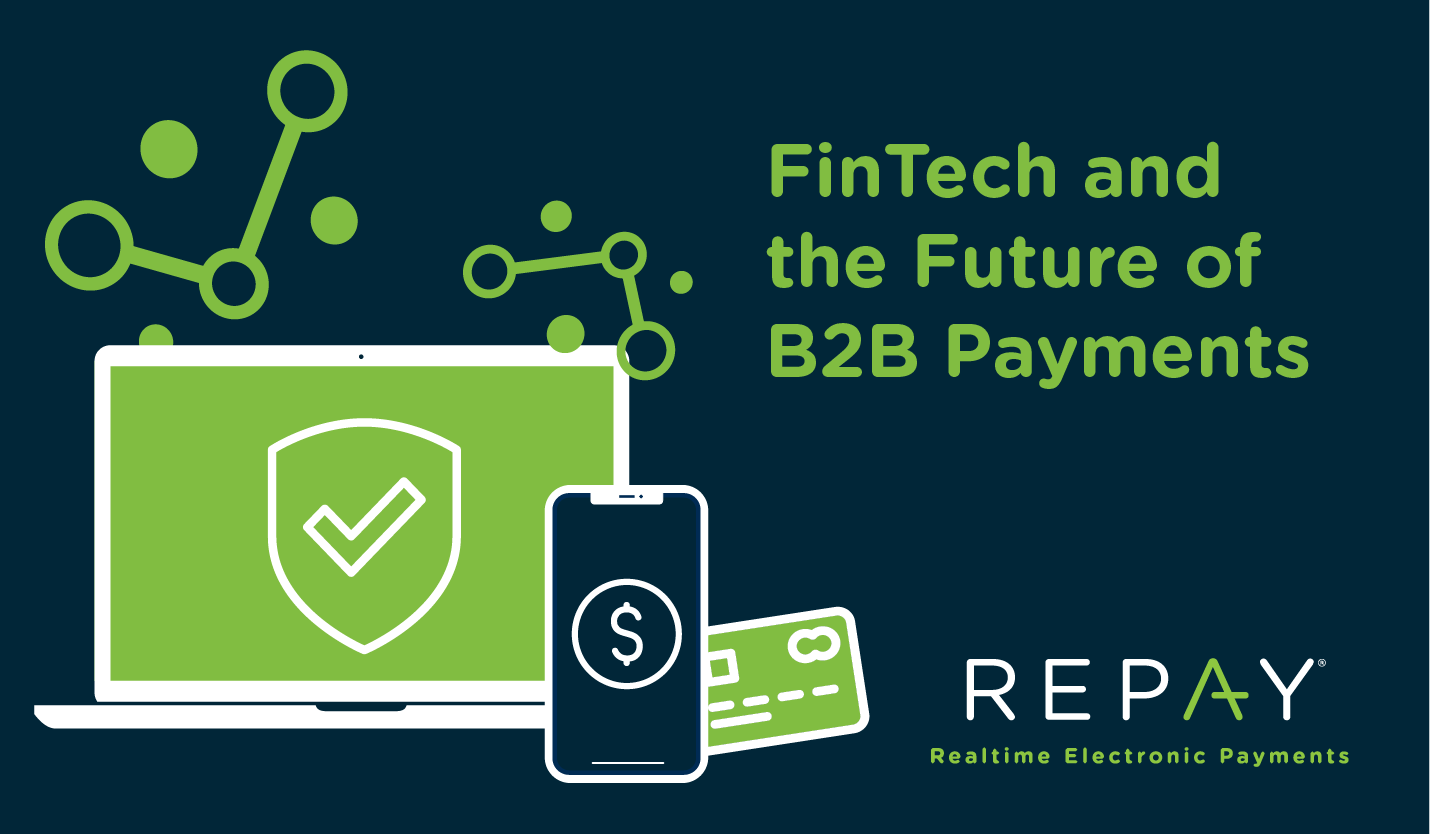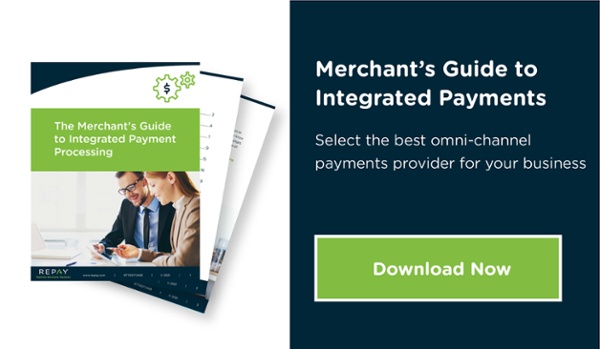FinTech B2B Payments are impacting how businesses and consumers pay, store, move, save, borrow, invest, and protect money.
If you have made a payment using your phone, transferred money using an app, or checked an invoice or bank statement online then you already have experience in the FinTech industry.
FinTech is fast-becoming the new normal. Payments industry trends such as moving to cashless and electronic payments along with the rise of eCommerce and mobile transactions are all being propelled quickly forward by the “FinTech revolution”. In this past year, many companies have faced COVID-19 cash flow challenges and need to transform their payment systems in the “new normal” of remote work. FinTech, however, is quickly becoming the “new normal” of business, impacting how merchants and consumers pay, store, move, save, borrow, invest, and protect money.
What is “FinTech”?
"Financial technology (FinTech) is used to describe new tech that seeks to improve and automate the delivery and use of financial services. At its core, FinTech is utilized to help companies, business owners and consumers better manage their financial operations, processes, and lives by utilizing specialized software and algorithms that are used on computers and, increasingly, smartphones. FinTech, the word, is a combination of "financial technology".
Source: Investopedia.com
Financial technology is changing our world, our economies, and the way we do business. FinTech refers to a wide range of products, technologies, and business models that are reshaping the financial services industry. These innovations are designed to compete with traditional financial methods and institutions - and to improve activities in every aspect of finance.
Types of FinTech Solutions
Open/Challenger Banking
- Platforms connect to APIs for transferring banking data, enable peer-to-peer lending, and credit reporting
AI and machine learning platforms
- Tools for core business processes such as fraud protection, accounts receivable, and compliance
Personalization
- Personalized advice platforms from investment to lending, automated customer service technology, UX design, and more
- Lending and crowdfunding platforms
- Marketplaces that standardize processes, marketing, and legal materials
Security and identity
- Client onboarding, digital identity, real estate, and tokenization
Blockchain
- Contracts and identity
Payment technologies
- From crypto to payment operations to mobile payments
The FinTech market is booming, with growth in every sector from venture capital to blockchain to services firms of all kinds. According to research published by deVere Group, COVID-19 has driven a substantial 72% rise in the use of FinTech apps in Europe. This is one more sign indicating that our world is increasingly shifting to digital business and communication. Investors worldwide are seeing the efficiency and convenience that FinTech banking solutions are providing and hedging bets that this trend will continue long past 2020.
Many software companies are maneuvering to join the payments industry but currently lack the necessary payments infrastructure to keep pace with constantly changing regulations. Payment solutions with established networks of merchants and end customers have greater experience in the industry as well as the leverage to create an optimal payments infrastructure stack. B2B FinTech companies who specialize in payments, such as all-in-one payments providers, are incentivized to process payments faster, to offer cutting edge payment innovations, flexible integration and competitive payment terms for their merchants.
Top 2020 Innovations in FinTech B2B Payments
- Automation
- Integrations and payments infrastructure
- Tokenization
- Reducing Risk
- Flexibility (Open API)
Ways Providers help SMBs with FinTech B2B Payments
- Increase cash flow
- Customer retention
- Automate processes
- Decrease costs
- Integrate payments with business software and systems
- Reduce late payments
- Reduce chargebacks
- Reduce fraud
- Enable omni-channel payment processing
Slow, paper-based AR processing methods are costing your business money. FinTech payment solutions such as automated payments put funds directly into your bank account without manual entry, thus saving on labor, saving time, and reducing the risk of entry errors.
Customers who are able to pay how they want to are more likely to pay on time, remain loyal customers, and report overall satisfaction with the payment service. Online payment portals, such as REPAY ClickToPay, enable payments to be made remotely. Customers who can safely save their information off your servers and pay their bill with the click of a button will be more likely to pay faster and improve your cash flow.
Safely storing customer information in a cloud-based vault removes sensitive financial data off your private servers and limits your PCI scope and liability. B2B FinTech payment firms are able to read your customer’s digital signature, safely tokenize their data, and confer with financial institutions all before authorizing the payment.
B2B FinTech payments providers can offer a wide array of features, integrations, and automations to help your company. Seamlessly integrated solutions connect your software solutions all together (ERP, AR, shopping cart, POS, etc.), with shared tokens for easy reconciliation. Efficiently leveraged payment integrations create a seamless experience for customer and business users at all possible touch points.
What to look for in a FinTech B2B Payment Provider
Not all B2B FinTech companies are created equal. If your business requires you to accept global payments or you may have cross-border payments in your near future then traditional banking options for small business will not be enough. It is imperative that your payment solution be omni-channel with multi-currency options.
Similarly, not all payments integration are created equal. Your business could be spending thousands of dollars annually more than if your integration featured automated Level 3 discount for B2B transactions. Level 3 B2B payment processing collects specific transaction data and automatically submits it to garner lower processing rates (up to 43%) for qualifying business to business transactions. Integrated and automated Level 3 processing pulls the necessary data points for you with no extra man hours or manual data digging to maximize savings.
Other key payment feature considerations include: 24/7 live customer support, line-item detail on merchant statements, and all-in-one payment solution providers.
As the B2B and payments industries changes, REPAY is here to help!
REPAY has a team of payments experts standing by to educate you on integrated payment processing. REPAY offers omni-channel B2C and B2B integrated payment solutions and is a gateway and processor that is trusted by thousands of merchants daily to process payments. With payment integrations to many leading ERP and eCommerce platforms like Acumatica, AccountMate, Adagio, Sage, SAP Business One, Magento, WooCommerce, BigCommerce, Miva, and more, REPAY is leading the way in the payments industry.
There is a lot to know when researching the best payments solution for your business. Download our free credit card processing buyer's guide to help you stay informed on the basics, features, and trends, so you select the best possible payments provider for your business.

